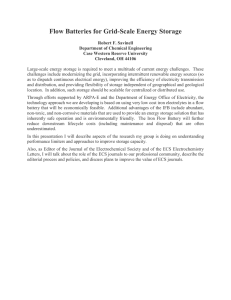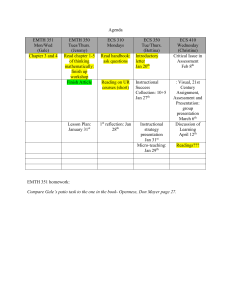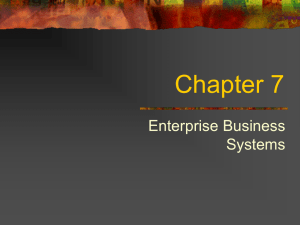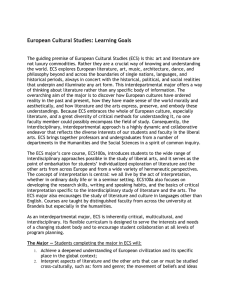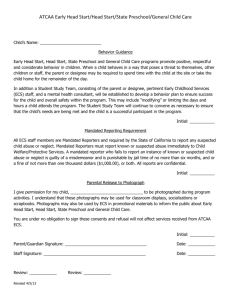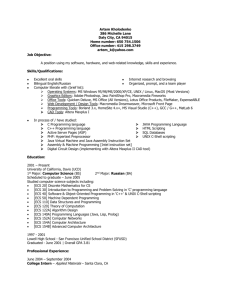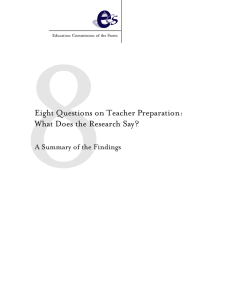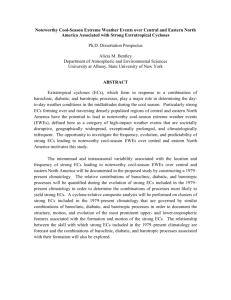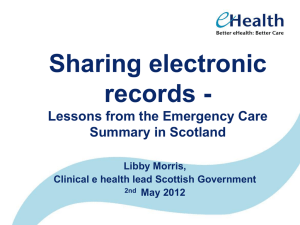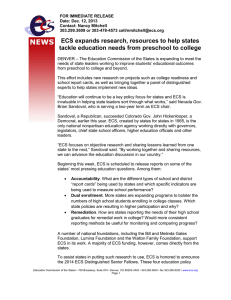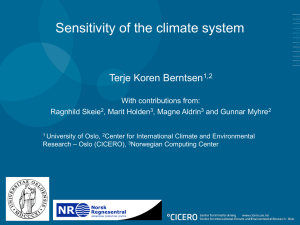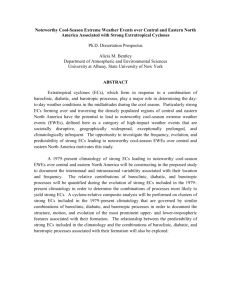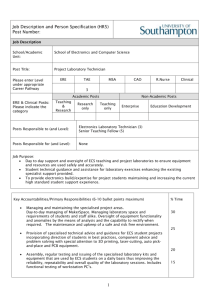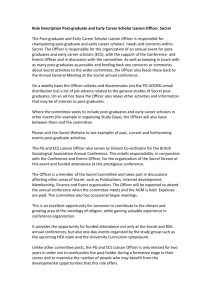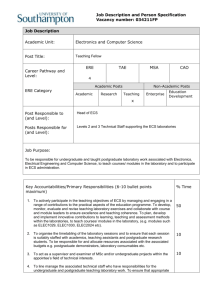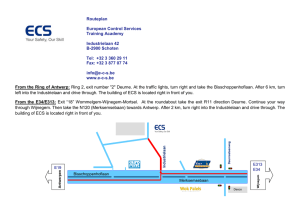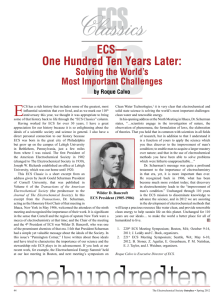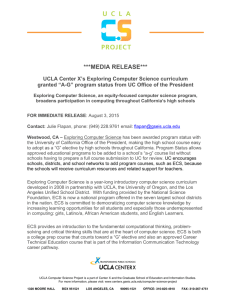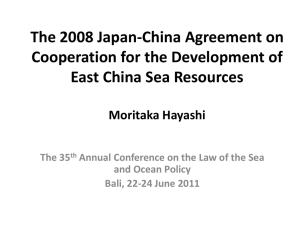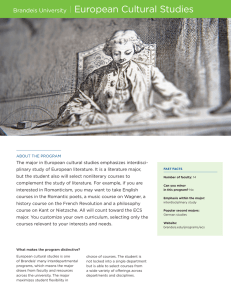RSS19a - Math Forum
advertisement
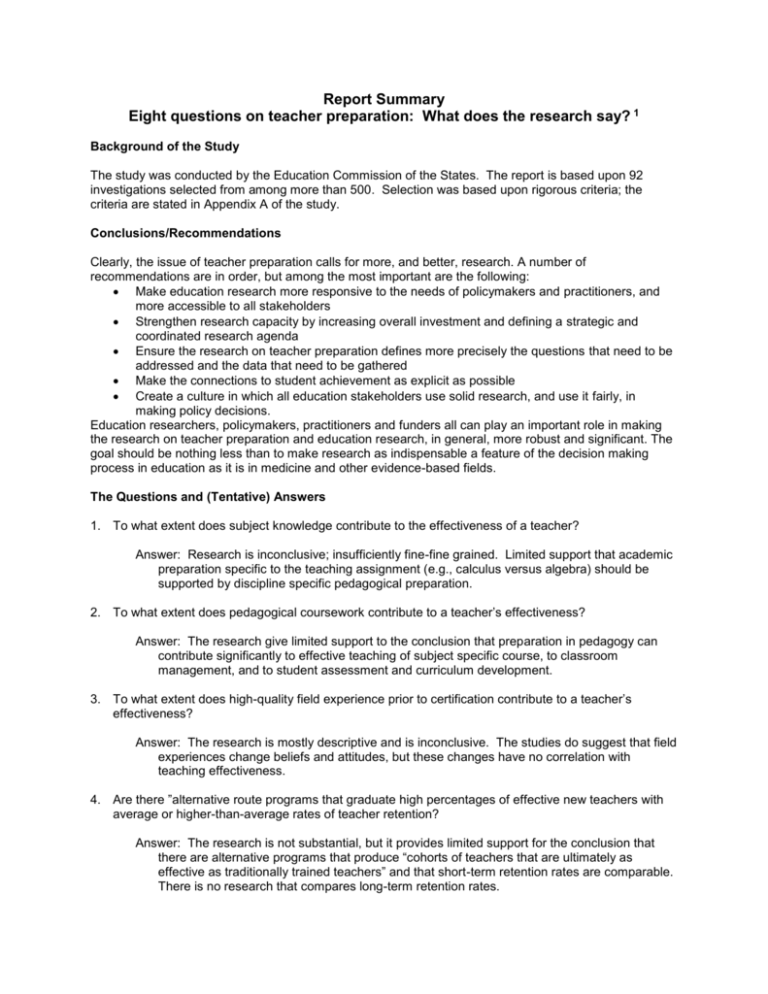
Report Summary Eight questions on teacher preparation: What does the research say? 1 Background of the Study The study was conducted by the Education Commission of the States. The report is based upon 92 investigations selected from among more than 500. Selection was based upon rigorous criteria; the criteria are stated in Appendix A of the study. Conclusions/Recommendations Clearly, the issue of teacher preparation calls for more, and better, research. A number of recommendations are in order, but among the most important are the following: Make education research more responsive to the needs of policymakers and practitioners, and more accessible to all stakeholders Strengthen research capacity by increasing overall investment and defining a strategic and coordinated research agenda Ensure the research on teacher preparation defines more precisely the questions that need to be addressed and the data that need to be gathered Make the connections to student achievement as explicit as possible Create a culture in which all education stakeholders use solid research, and use it fairly, in making policy decisions. Education researchers, policymakers, practitioners and funders all can play an important role in making the research on teacher preparation and education research, in general, more robust and significant. The goal should be nothing less than to make research as indispensable a feature of the decision making process in education as it is in medicine and other evidence-based fields. The Questions and (Tentative) Answers 1. To what extent does subject knowledge contribute to the effectiveness of a teacher? Answer: Research is inconclusive; insufficiently fine-fine grained. Limited support that academic preparation specific to the teaching assignment (e.g., calculus versus algebra) should be supported by discipline specific pedagogical preparation. 2. To what extent does pedagogical coursework contribute to a teacher’s effectiveness? Answer: The research give limited support to the conclusion that preparation in pedagogy can contribute significantly to effective teaching of subject specific course, to classroom management, and to student assessment and curriculum development. 3. To what extent does high-quality field experience prior to certification contribute to a teacher’s effectiveness? Answer: The research is mostly descriptive and is inconclusive. The studies do suggest that field experiences change beliefs and attitudes, but these changes have no correlation with teaching effectiveness. 4. Are there ”alternative route programs that graduate high percentages of effective new teachers with average or higher-than-average rates of teacher retention? Answer: The research is not substantial, but it provides limited support for the conclusion that there are alternative programs that produce “cohorts of teachers that are ultimately as effective as traditionally trained teachers” and that short-term retention rates are comparable. There is no research that compares long-term retention rates. 5. Are there any teacher preparation strategies that are likely to increase the effectiveness of new teachers in hard-to-staff and low-performing schools? Answer: The few studies in this are provide limited support for the conclusion that “deliberate efforts to prepare teachers to teach in urban, low-performing schools can be beneficial”, but there is no research addressing the needs of teachers in rural schools. 6. Is setting more-stringent teacher preparation program entrance requirements, or conducting moreselective screening of program candidates, likely to ensure that prospective teachers will be more effective? Answer: The research, consisting of three studies that address the question indirectly, is inconclusive. One study does suggest that raising academic requirements would reduce the pool of teaching candidates, particularly minorities. 7. Does the accreditation of teacher preparation programs contribute significantly to the likelihood their graduates will be effective and will remain in the classroom? Answer: The research, three studies, is inconclusive. 8. Do institutional warranties for new teachers contribute to the likelihood that recent graduates of those institutions will be effective? Answer: The subject has not been researched. Despite the absence of research, two states (GA and KY) and 20 institutions in other states offer institutional warranties. About the Publisher The Education Commission of the States (ECS) is a nonprofit, nationwide interstate organization that helps governors, legislators, state education officials and others identify, develop and implement public policies to improve student learning at all levels. ECS is chaired by a different governor each year, alternating parties. The ECS office is located at 700 Broadway, Suite 1200, Denver, CO 80203-3460. TEL: 303-299-3600. FAX: 303-296-8332. WEBSITE: http://www.ecs.org Caveat Emptor This summary was prepared by Bob Kansky (robk@tribcsp.com). It’s one of a series summaries offered to business, education, and policy leaders who are interested in the systemic improvement of mathematics and science education. The summary does not critique the report’s assumptions, methods, or conclusions. It simply uses a somewhat standardized format to provide a brief introduction to the content of the report. Readers are encouraged to consult the original document for further information. 1Allen, M. A. (2003). Eight research questions on teacher preparation: What does the research say? Denver, CO: Education Commission of the States. http://www.ecs.org
